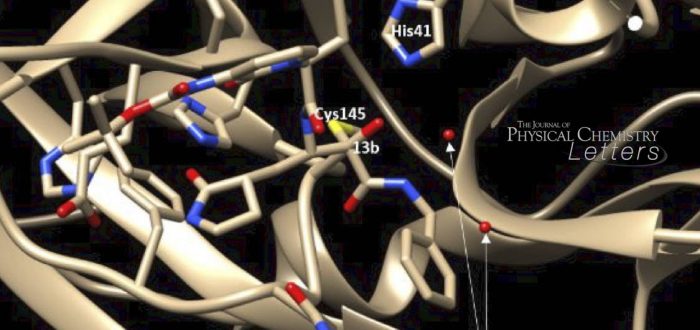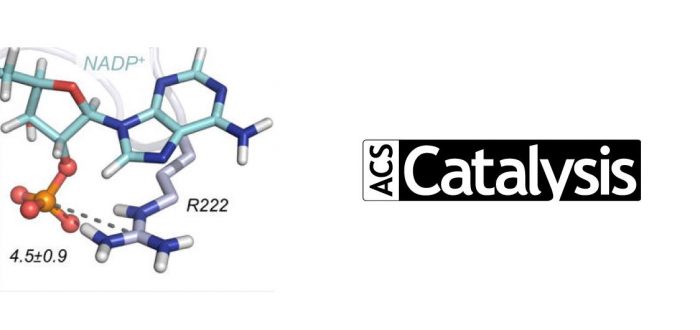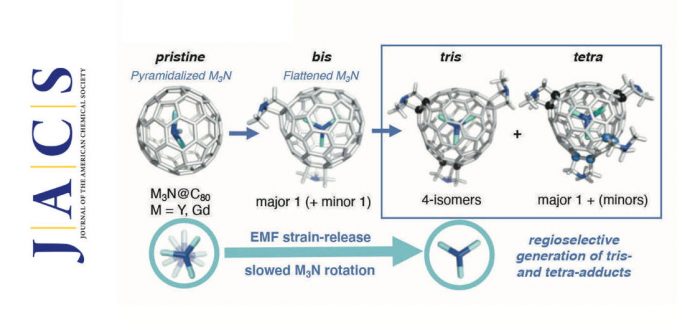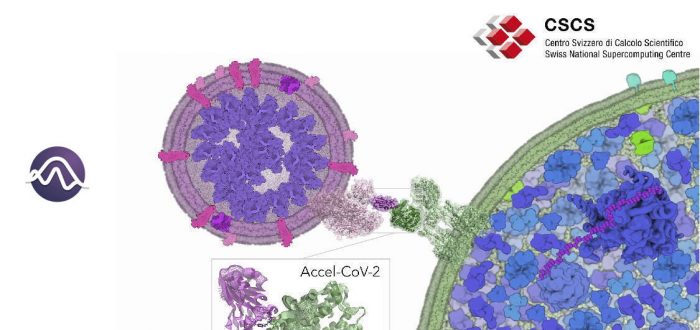Recently, Hilgenfeld and co-workers reported (Science 2020, 368, 409–412) that alpha-ketoamide-derived substrates act as inhibitors of COVID by targeting the SARS-CoV-2 main protease. Their crystal structure analysis provided the basis for an in-depth computational study by Albert Poater, Serra Hunter fellow at IQCC (Univ. Girona). His calculations based on Density Functional Theory provided the origin
- sec.iqcc@udg.edu
- +34 972 41 83 57
News
The ubiquity and relevance of oxygenated motifs in biologically active compounds calls for the development of effective and selective C-H and C=Coxidation reactions. Inspired by the impressive selectivity and versatility of Nature oxidation catalysts, and especially nonheme Fe oxygenases, chemists have designed small molecule catalysts that can hydroxylate C-H bonds and epoxidize or syn-di-hydroxylate C=C bonds with
The development and application of a novel in vivo selection method enabled the testing of more than >106 variants of formate dehydrogenase (FDH) to switch its cofactor specificity in one single round of protein directed evolution, using multiple mutational sites selected based on previous studies and initial computational modeling. Due to this new approach, key
In this collaboration project between ETH Zurich, Purdue University Fort Wayne, and the IQCC (Dr. Adrià Romero-Rivera, Dr. Marc Garcia-Borràs, and Prof. Sílvia Osuna) the tris- and tetra-adducts of M3N@Ih–C80 metallofullerenes were synthesized and characterized for the first time. The 1,3-dipolar cycloaddition (Prato reaction) of Y3N@Ih-C80 and Gd3N@Ih-C80 with an excess of N-ethylglycine and formaldehyde
Every year the Catalan Foundation for Research and Innovation (FCRI), with the support of the Catalan Government, organises the Catalonian National Research Awards. These prestigious awards recognise and reflect different aspects of research, science communication and outreach. One of these awards is for Young Talent, in recognition of the outstanding effort of a junior researcher
This week took place the Remote BioExcel Summer School on Biomolecular Simulations, in virtual manner, which included a poster session. Carla Calvó, PhD student under the supervision of Dr. Marc Garcia-Borràs and Prof. Sílvia Osuna, presented a poster titled “Unraveling The Millisecond Allosteric Activation of Imidazole Glycerol Phosphate Synthase (IGPS)”, and won the first prize, which consists of
The Journal of the American Chemical Society (JACS) features on its front cover the recently published article “Too Persistent to Give Up: Aromaticity in Boron Clusters Survives Radical Structural Changes”. The work has been carried out by Francesc Teixidor, Clara Viñas, and Ines Bennour of the Institute of Materials Science of Barcelona (ICMAB-CSIC), Jordi Poater at
The nitrosyl ligand is the prototypic example of a so-called ‘non-innocent’ ligand, which hinders the unambiguous assignment of the central metal’s oxidation state (OS). Even after the IUPAC effort to revise the concept of OS, ambiguities still originate on the M–N–O angle, where it is widely assumed the rule “the MNO segment should be linear
The project EuNightCat20, within the MSCA-NIGHT-2020 call, aims to celebrate the European Researchers’ Night in Catalonia. The consortium, coordinated by our Sílvia Simon, includes partners from different Catalan cities: Universitat de Barcelona, Associació Catalana per la Comunicació Científica, Universitat Rovira i Virgili, Universitat de Lleida, Universitat de Vic – Universitat Central de Catalunya and ISGLOBAL. Each partner
A team of researchers from IQCC has been awarded computational time at the Piz Daint supercomputer of the ETH Zurich/CSCS (Switzerland) to explore the molecular and dynamical SARS-CoV-2/hACE2 recognition and inhibition mechanisms. In the framework of the Accel-CoV-2 project, the team will perform extensive accelerated Molecular Dynamics (aMD) simulations to access millisecond motions that can be










